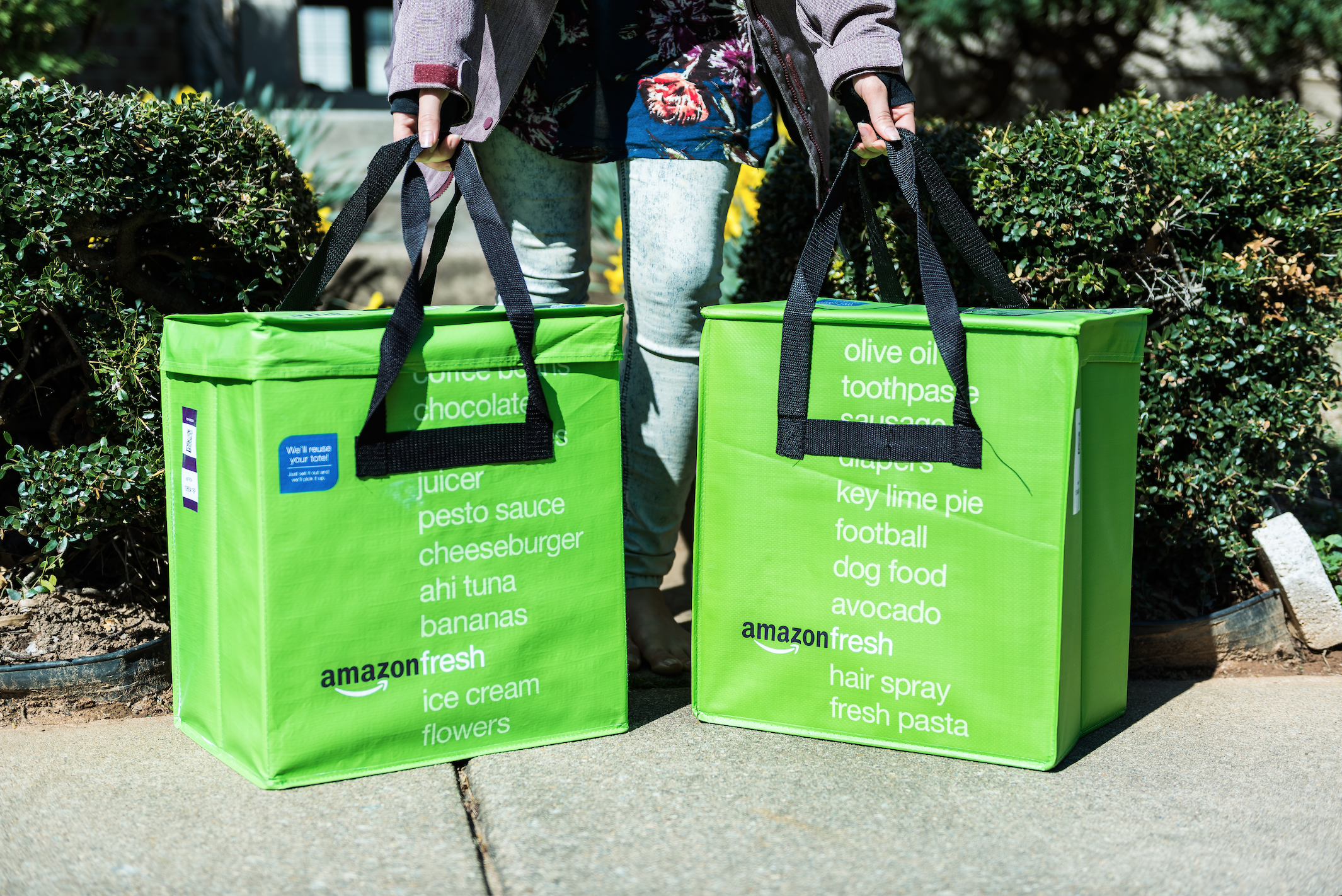The Missouri Department of Social Services (DSS) has officially applied for a waiver to allow individuals to purchase groceries online with Supplemental Nutrition Assistance Program (SNAP) benefits.
The department submitted a waiver to the U.S. Department of Agriculture (USDA) on April 17, just one day after Gov. Mike Parson said the change was “important” as Missouri continues to grapple with the persisting coronavirus pandemic. Amazon and Walmart have agreed to be retailers for such purchases in Missouri although the state’s waiver does ask that additional grocery retailers be included, DSS said in a news release.
“Food Stamp households should have the same opportunity to practice social distancing and minimize the risk of exposure to COVID-19 as any Missourian making food purchases,” Jennifer Tidball, acting director of DSS, said in a statement. “Online food purchasing with an EBT card is a necessary option. The waiver submission is the first step in the process. I am hopeful we can work with USDA to get a quick approval for Missouri SNAP households.”
The push for the waiver comes as Missouri is under a statewide stay at home order, and individuals are asked to practice social distancing and find alternative ways to buy essential items, including by utilizing pick-up or delivery services.
However, SNAP benefits cannot be used to purchase groceries online without a waiver from the federal government.
USDA launched a pilot program in April 2019 allowing online purchasing with SNAP benefits in New York. Washington joined the program in January 2020; Alabama, Iowa, and Oregon were included in March; and Nebraska was added in April.
Additionally, Arizona, California, Idaho, North Carolina, and Washington, D.C., have been approved to implement online purchasing in April or May.
Both Amazon and Walmart are retailers for all of the states with the program up and running. Alabama and New York have additional retailers as well.
Under the program, only eligible food can be bought using SNAP benefits. Delivery fees and other related charges are not covered by SNAP benefits, the USDA said.
More than 750,000 Missourians had SNAP benefits per month in 2017, according to data from the USDA. The Missouri Budget Project estimates the number of people requiring food assistance during the coronavirus pandemic will at least equal — if not surpass — the quarter-million increase during the Great Recession.
As businesses remain closed during the persisting global pandemic, Missouri saw more than 101,700 initial unemployment claims for the week ending April 11. The state totaled more than 91,000 claims the week prior with at least 76,000 of those related to coronavirus. The previous week saw 104,230 claims with more than 89,000 related to COVID-19.
State Rep. Kip Kendrick, a Democrat whose district encompasses the Columbia area, has emerged as a strong advocate for getting Missouri into the program.
“This is just another example of red tape we can cut through to improve the health and safety of Missourians,” Kendrick previously told The Missouri Times.
“Missourians are being asked to stay home to protect their own health and safety, and others in their communities. Making sure they can still get the things they need during this emergency while doing their part to stop the spread of the coronavirus is just common sense,” U.S. Senator Roy Blunt previously told The Missouri Times. “I will continue working with the Missouri Department of Social Services to ensure they have the resources and flexibility they need to help families respond to the challenges they’re facing.”
Missouri has been under a stay at home order since April 6, but grocery stores have remained open. Many have dedicated at least an hour each morning for elderly, pregnant, and other at-risk individuals to shop. Stores have put out social distancing remainders, erected plexiglass at checkout counters, and encouraged patrons to wear masks.
Parson extended that order through early May.
EDITOR’S NOTE: For up-to-date information on coronavirus, check with the CDC and DHSS.

Kaitlyn Schallhorn was the editor in chief of The Missouri Times from 2020-2022. She joined the newspaper in early 2019 after working as a reporter for Fox News in New York City.
Throughout her career, Kaitlyn has covered political campaigns across the U.S., including the 2016 presidential election, and humanitarian aid efforts in Africa and the Middle East.
She is a native of Missouri who studied journalism at Winthrop University in South Carolina. She is also an alumna of the National Journalism Center in Washington, D.C.
Contact Kaitlyn at kaitlyn@themissouritimes.com.
























